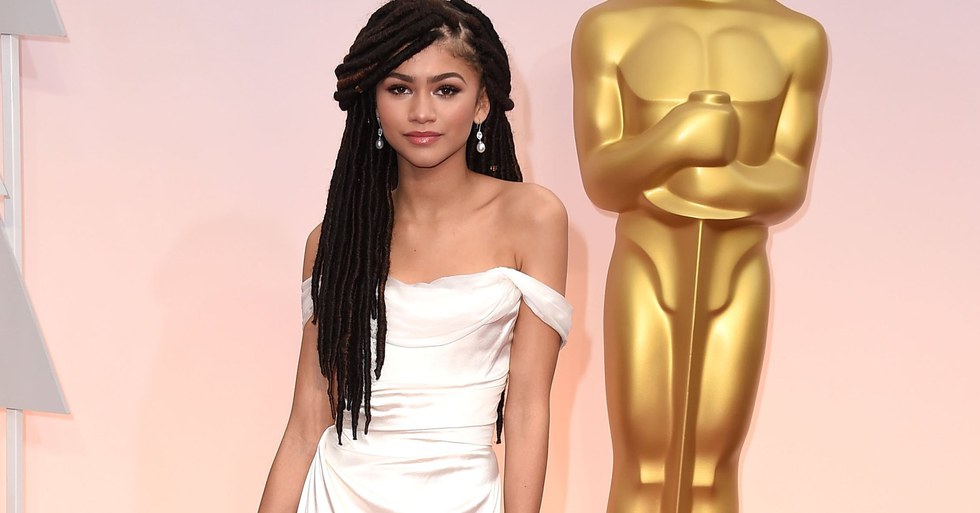There is a thin line between cultural appreciation and appropriation, as everyone in this world has different sets of values and experiences which to combine to form their idea of culture and what context (and by who) it should be embraced.
It is often ‘hip’ for white celebrities to sport ‘black’ hairstyles, such as Justin Bieber with dreadlocks and Kylie Jenner with ‘box braids’ (corn rows). Although thought of as ‘black’, dreadlocks have also been sported in other cultures, religions, and places, such as in Greek culture, the Rastafari culture, African tribes, Hinduism, Christianity, and Judaism, among others. In this regard, people are not necessarily ‘stealing’ a hairstyle from one particular culture.
Zendaya at the Oscars, 2015, courtesy of The Odyssey
However, the issue comes into play when it is ‘cool’ for these white celebrities to sport these ‘black’ hairstyles, while celebrities of color are criticized. For example, Zendaya Coleman wore dreadlocks at the Oscars, and a commentator remarked that she “probably smelled of weed or patchouli oil”. This comment would have not been made about a white celebrity. Additionally, people of color have been criticized and not allowed to wear their naturally in professional settings until very recently, and still face racist policies when they do not maintain their hair in a ‘white’ fashion.
So what does it mean when Cardi B and Nikki Minaj sport long blonde hair down past their waists? Is this a form of reverse cultural appropriation? Is that even a thing, as reverse racism is not considered valid? There is no one right answer, as people have varying opinions.
As a student who has traveled to a few different countries, I have been met with exclamatory positivity when embracing elements of other cultures. Recently, I wore a Kurta, Indian dress, that I had bought in India while studying there, to an Hindu Diwali celebration that I attended with my Indian roommates. My other roommate, also not Indian, wore a sari, and everyone at the celebration was delighted to see her in it.
Me, Wearing Corn Rows, Braided by My Friend, Jasmine
As a creative person, it is impossible to not be influenced by other cultures and different ways of life that might make you see things in a different way. I think of recent work in my South Asian Diaspora class in which we examined the role of the AU (Asian Underground) movement in the U.K., a phenomenon of ethnically Indian and culturally British Djs remixing hip-hop, techno, and Indian hymns and music to create a celebration of their culture that allowed them to feel more at home in between two worlds and gave them identity and inclusion that they had not felt before. In this context of place and time period as well, South Asian women began to adopt Western fashion, and British women began to adopt South Asian fashion. This allowed for many South Asian to actually feel comfortable about wearing ethnic clothes, because now it was seen as ‘fashionable’ in the mainstream media, whereas in the past they were mocked and ridiculed.
Cultural appropriation plays up on themes of domination and privilege, does not give credit to the original culture/religion, and is insensitive. Oppositely, cultural appreciation understands the significance and oppression/marginalization that groups have faced in their culture, and takes into account the way that their adaptation of other cultures could offend those of that culture.
It is not easily defined, but as Zendaya remarks, “It’s a process for everyone and now with social media, I suggest that people try to become more aware and learn. I’m learning just like everybody else.”
The heart of this is being conscientious, especially in regards to white privilege and the ways in which fashion and music can amplify ignorance of white privilege in the media- which needs to, and is continually increasing, to be challenged. I feel that when I am invited to explore the ways of other cultures, it should be celebrated, as long as I am aware of the backlash that people who originally participate in this fashion/music/celebration face by white privilege and society.
What are YOUR thoughts? Email us at getrelatedworld@gmail.com to be featured 🙂



